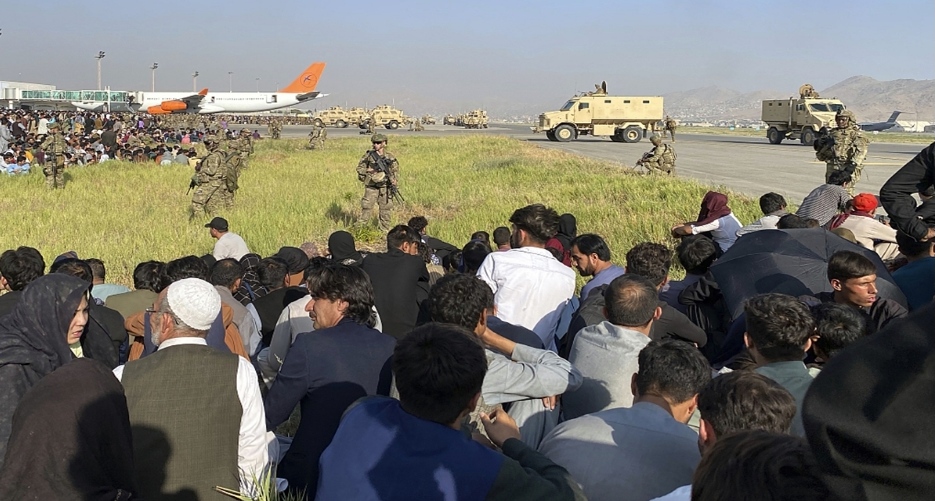Taliban victory a major failure of Western civilization’s expansion
By
Ding Gang

Photo: VCG
The victory of the Afghan Taliban is a major failure of Western civilization that started with its expansion 500 years ago. Even though the West will not stop expanding, the Taliban’s counterattack will probably lead to a shock wave of Islam.
The US failure in Afghanistan is not simply about military power. The expansion of Western civilization was a war between the Christian world and the Muslim world from the very beginning since 500 years ago. It was not only a struggle for wealth, but also a battle of ideas and beliefs.
The withdrawal of US troops from Afghanistan has a symbolic significance. That is, the use of force to transform or conquer so-called backward civilizations will no longer work because the world today is completely different from 500 years ago when the West conquered South America.
We won’t deny that Western civilization has left rich legacies in fields like natural and social sciences – a wealth that will continue to benefit people.
However, the West has been undertaking religious and ideological missions all this time. In addition, it has been plundering wealth and markets all over the world relentlessly. This has caused endless wars around the globe and left heavy burdens on developing countries politically, economically, and geographically. In particular, the West’s forceful promotion of its political standards has constrained developing countries from seeking a stable development path that suits their own cultural and historical traditions.
The Durrani Empire, or the Afghan Empire, was founded in 1747. However, the country’s power declined in the 19th century, which has intensified the rivalry between Britain and Russia in this region.
Pashtuns are the largest ethnic group in Afghanistan. After the second Anglo-Afghan War (1878-80), The Durand Line was established in 1893. This resulted Afghanistan being a buffer zone between Britain and Russia.
The Pashtuns of British India were separated from those in Afghanistan. And British India was well-placed to the British Empire. In 1947, when the British colonialists left, the subcontinent was partitioned into two independent countries: India and Pakistan. Since then, the Durand Line has been a constant source of trouble for Afghanistan and Pakistan.
Former Afghan president Hamid Karzai said in 2016 that Afghanistan had never accepted the Durand Line as an official border between Afghanistan and Pakistan and would never accept it. Karzai described it as “a line of hatred which raised a wall between the two brothers.”
Much of the 2,670 kilometer-long Durand Line is divided by high mountains, snaking through desolate deserts and towering peaks. Both sides of the line have always been among the most closed, dangerous, and impoverished regions across the world. And it is certainly the most prone to being a breeding ground for religious extremism.
The Taliban has developed in such a geographical and cultural environment. They have a tradition of rigid religious organization and tenacious resistance to external civilizations.
The Soviet Union invaded Afghanistan in late 1979 in an attempt to reshape the Islamic country in its own political way, and miserably failed a decade later.
After the 9/11 attacks in 2001, the US, which believed that the Taliban-backed al-Qaeda sheltered its founder Osama bin Laden and refused to hand him over, led NATO to wage a war in Afghanistan to overthrow the Taliban.
But the US then was not what Biden says it is today, that it only had one single goal, which is to destroy terrorist organizations.
After the 9/11 attacks, the US launched the Greater Middle East initiative in 2004. Through the Iraq War, the US believed it should set an example of “democracy” in the Middle East and radiate it to the entire Arab world, thus completing the democratic transformation of this region. Afghanistan is also a part of that transformation.
The “nature” of this project takes orders from the Western mission of more than 500 years to dominate the world and transform or conquer other sub civilizations or beliefs
It was this sense of the American mission, and the policies it led to, that doomed the US and NATO in Afghanistan. Because in today’s world, it is impossible to continue to expand one’s civilization and institutional model by force.
After the withdrawal of American troops, some Western media complained sadly that the US had run away without completing its mission, which was a “heavy blow” to the spirit of its allies.
History tells us that the West’s expansion was driven by a sense of mission, but so was its loss. In the 20 years since the 9/11 attacks, Washington’s strategic focus has been changing, but its sense of mission to conquer the world has not.



